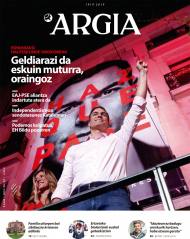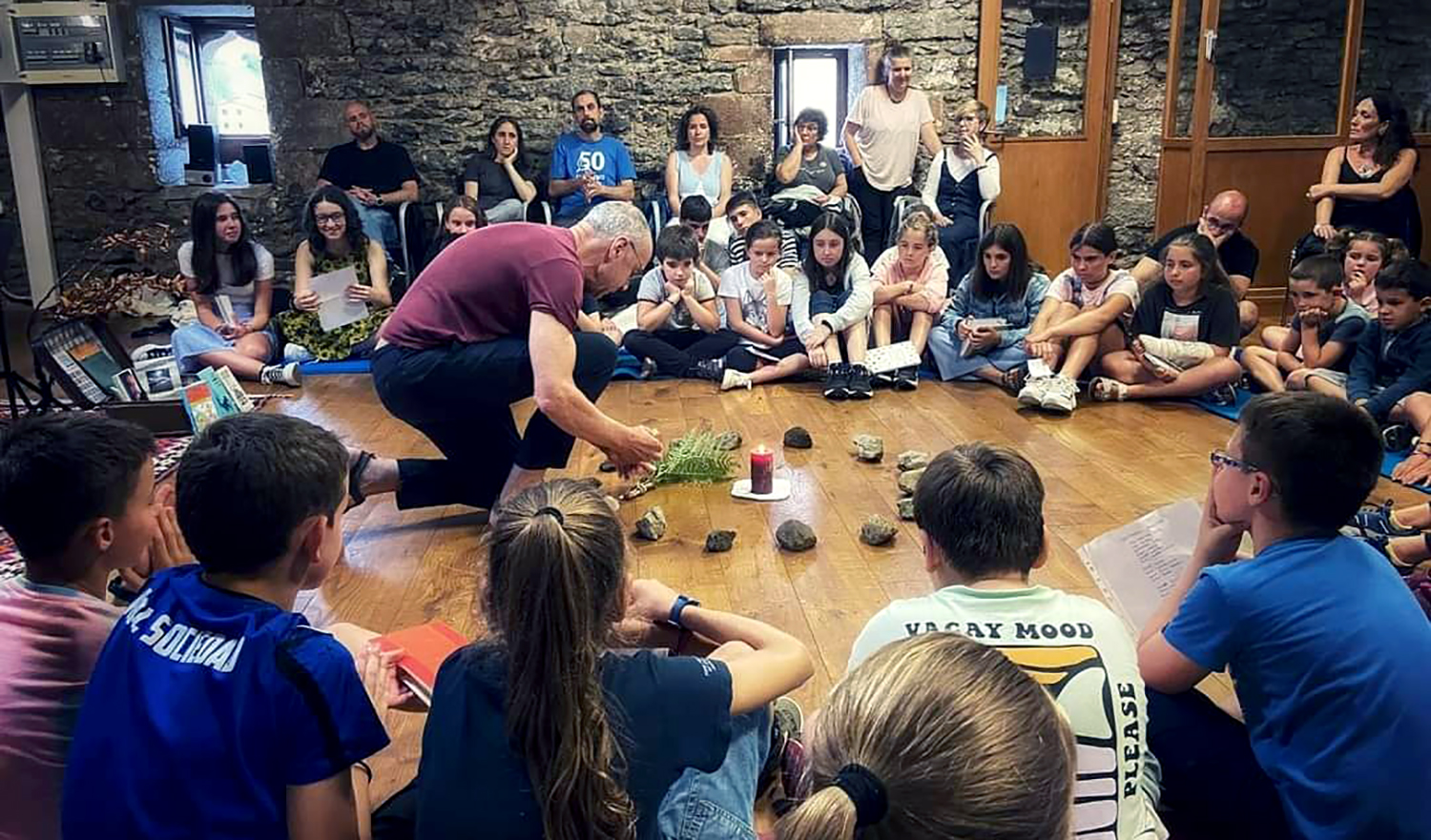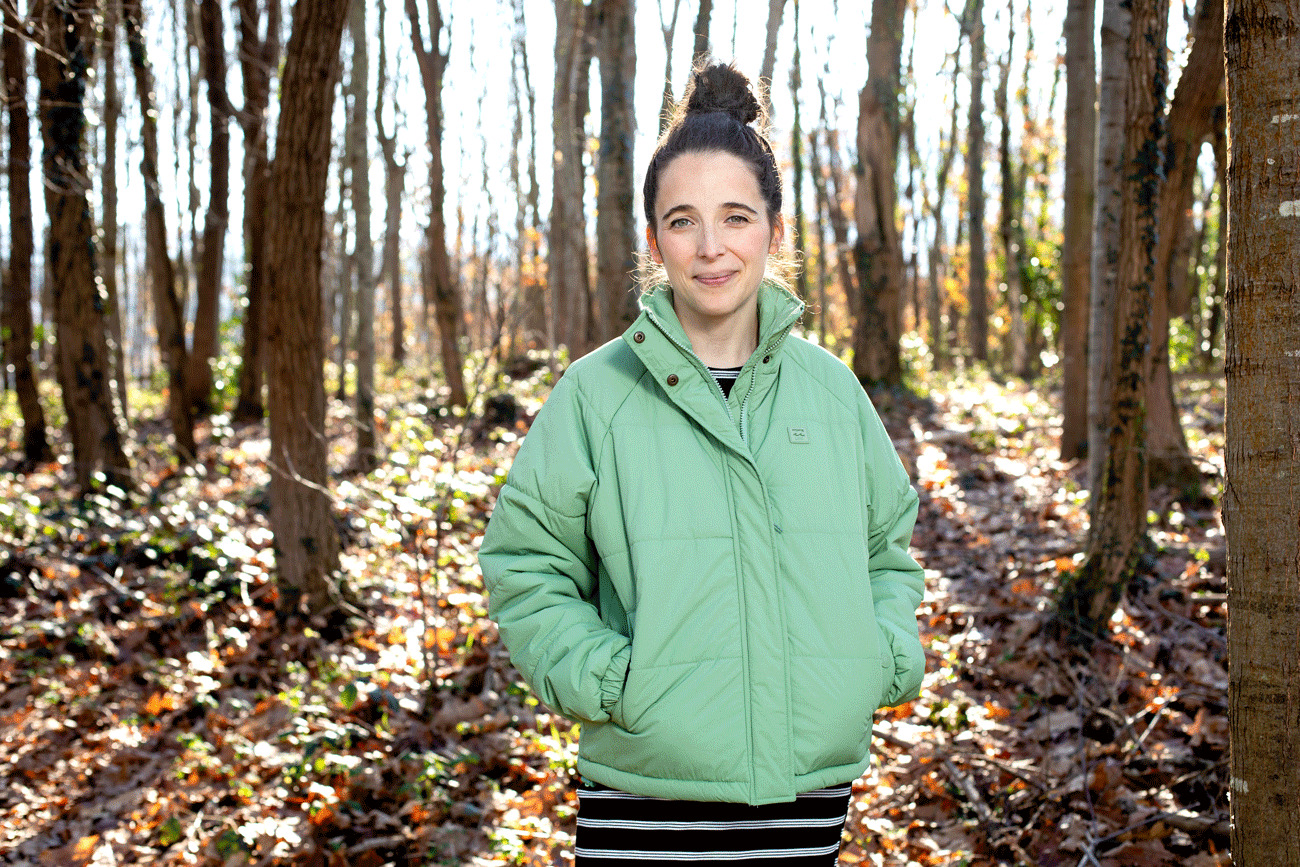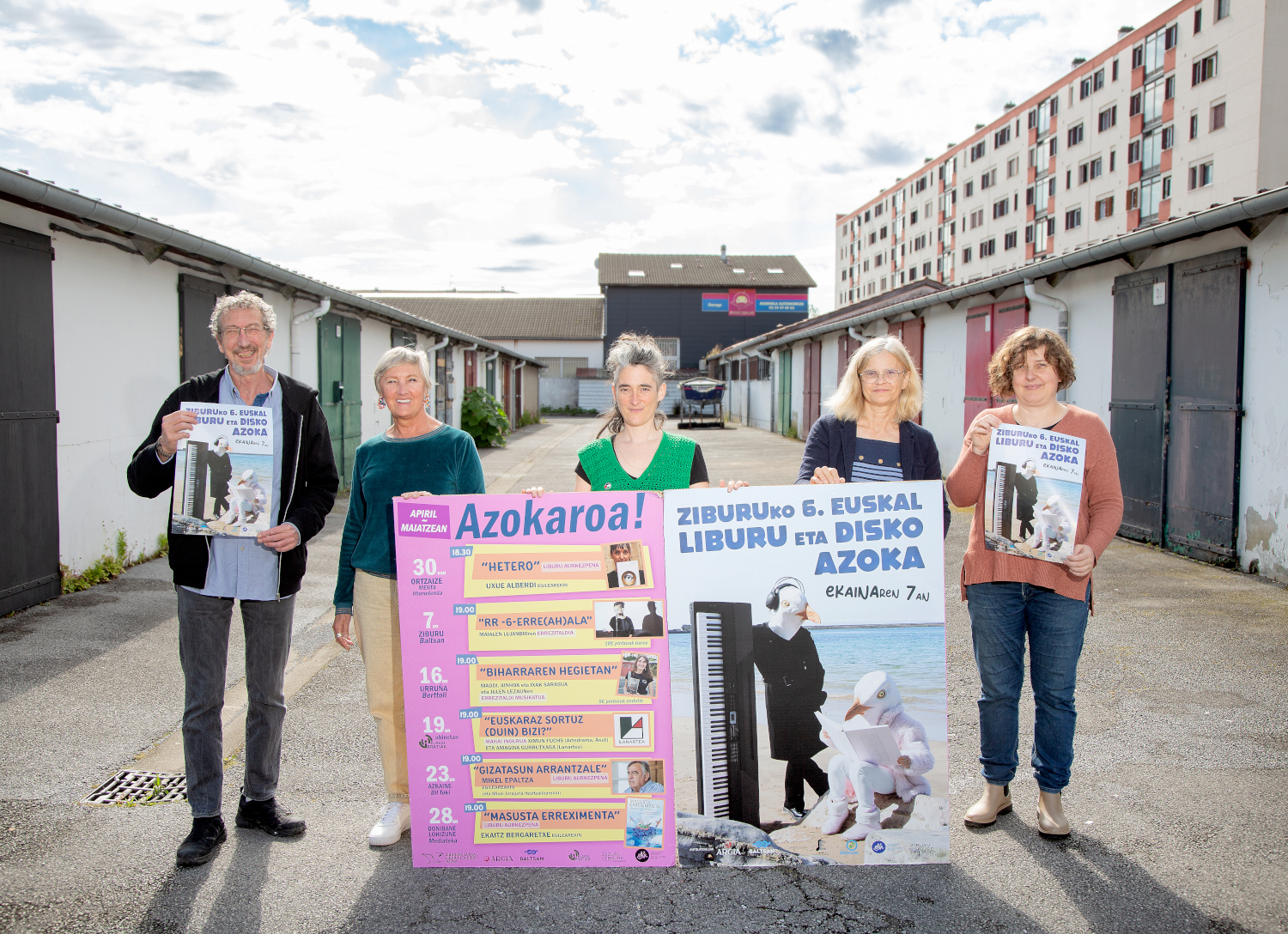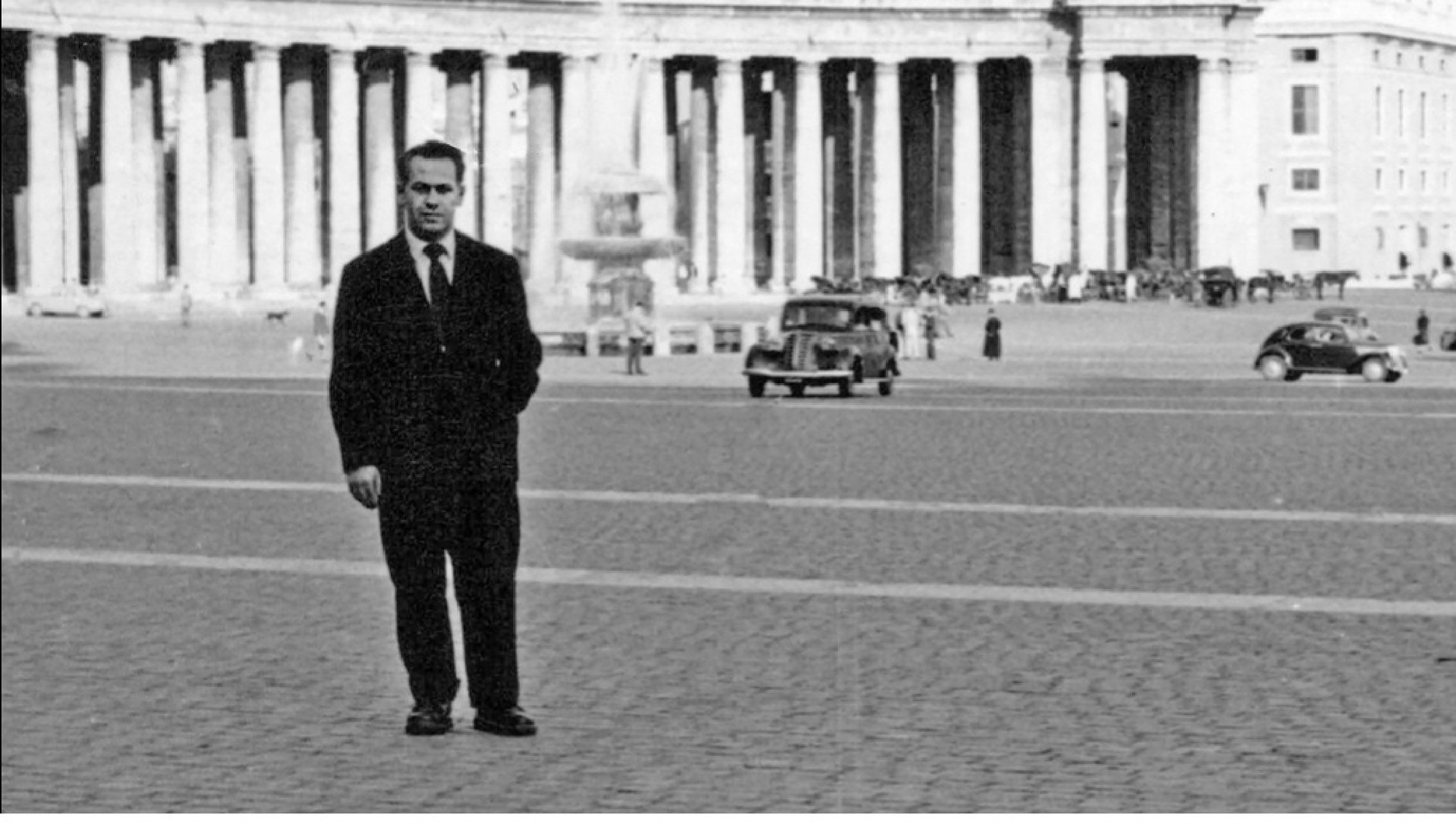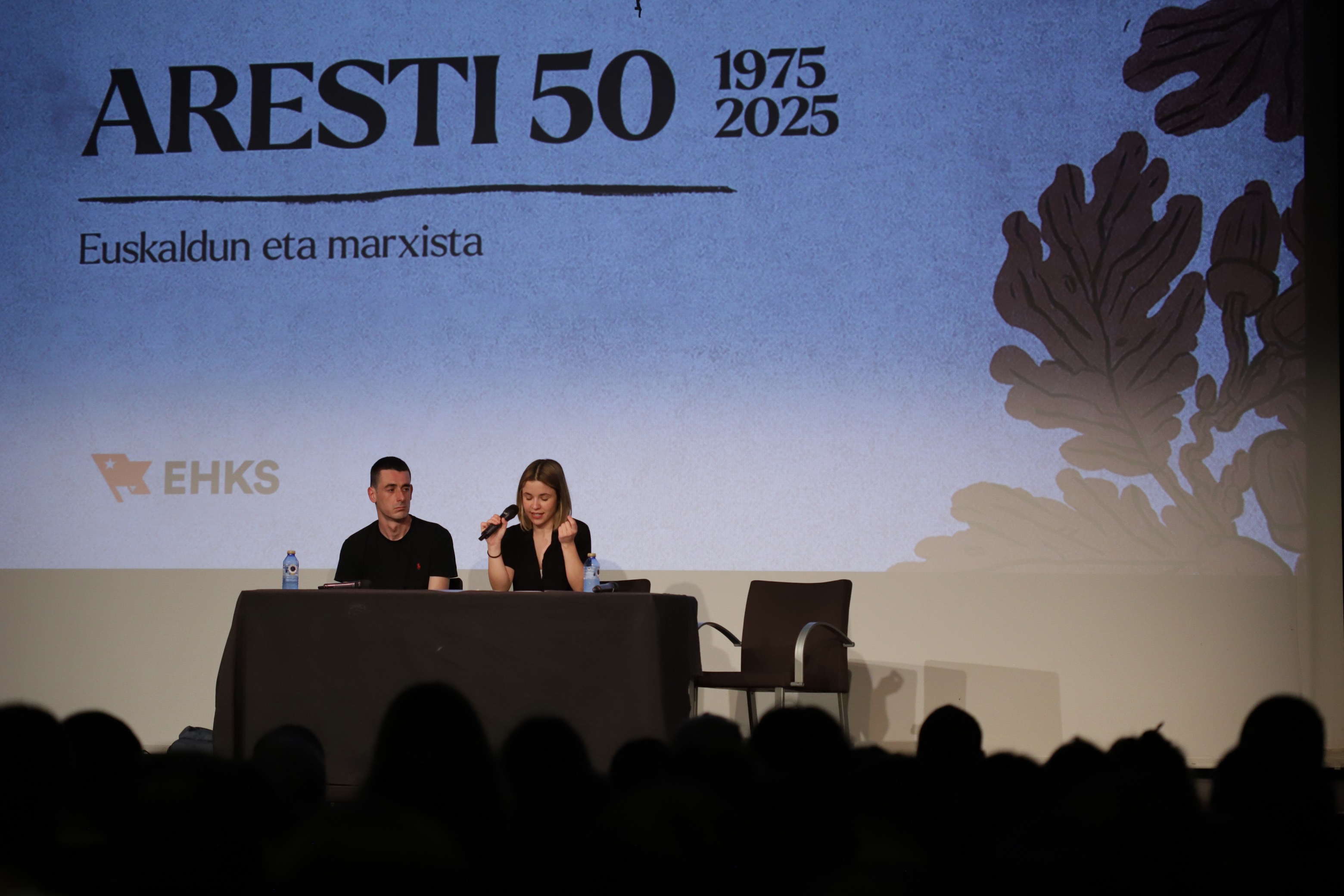"Novels can be used to question our convictions, not to make theses."
- After walking near the kale borroka in the 1990s, the protagonist of the novel No declare has changed its atmosphere and lifestyle and we found it at the door of the Reina Sofía Museum of Madrid. The first novel by Beñat Sarasola is based on the Basque conflict, personal relations as the axis, and is narrated in a very special style. On March 29, we conducted this interview in the cultural society Azpi, located in the Donostiarra neighborhood of Egia, in the official presentation of the book.

In this first novel I have searched for the traces of the works you have previously published: The freshness of an empty box, Alea’s formal wager, the controversial character of the articles you have written in the press... I think there's something about it, I don't know if you agree.
I'm glad to hear about freshness, because that means I'm not that old. The form is important to me, because I find it much more interesting than what is told, and in that sense there has been an effort, although there is also a story and at some point there are hints of suspense. I would like to go further, to do more from the formal point of view. I think you notice something, there's an effort, but since it's the first novel, in some things you're probably playing more conservative. Furthermore, it seems to me that it is important to adapt the contact to what you count, when a character is on the couch of your house or runs after a load of ertzainas, you cannot use the same way, because the situation is very different. I have made an effort on that side. That is, it is not a mere experimentation of form, but of what you are counting.
I don't like controversy so much [laughs]. It may seem the opposite, but I'm not looking for it.
In the presentation of the book you emphasized that this is a fiction work. “We are in a historic phase in which the reading of fiction is becoming more and more problematic,” he said. What do you mean by that?
It has long been said that fiction is in crisis, to say that is not a great novelty. I believe that fiction is a way of reading, not so much a concrete feature of texts, but how we read a text. And that fictional way of reading has experienced a lot of difficulties over the last few decades. We should look at why, and there can surely be many factors; perhaps it is because of immediacy, because we have to understand the texts quickly and because we have a tendency to make immediate readings. Then, in the Basque literature itself, the essay has had a tremendous boom; and the reader’s attitude to an essay and the attitude towards fiction is very different from that of the reader. When an essayist says “I think so” it’s one thing; and when a character in a novel or a storyteller says another. We're talking about another world. And I get the impression that lately, relatively simple moral or political readings are being made about fiction. Of course, fictions have political effects and moral implications, but I think there is a tendency to simplify some readings. Before this, I stress that this is a fiction, although then, surely, the reader of the novel will be made some things close: It's set in Donostia; the character isn't my age, it's two or three years older, but well, there are things that are identifiable; and yet, it doesn't mean it's not fiction.
Can it be related to a phenomenon that has taken on prominence in recent years? Genres such as self-fication now have a different weight than a few years ago.
It is true that writers who approach a kind of reality or depart from fiction have become fashionable. And I recognize that I love many of the writers who have done self-fection, W.G. Sebald or Enrique Vila-Matas, for example, in another time I read a lot. But in recent years it has become a fashion label, and I think there's a certain tendency to call anything for ease. To think that what you have lived with twenty-five or thirty years is, by nature, interesting to tell someone, without any artifice. And that's having too much self-love. Sometimes I read counted novels without much work, and for me the novel is a building, it asks you something else, it's not as easy as publishing a journal written for years.
“I have the impression that recently relatively simple moral or political readings on fiction are being made.”
I used to say that places and situations can be identifiable. I remember something Eider Rodríguez said to me: “It seems to me that there is a tendency to flee from Basque literature: from people with names and surnames like ours, from peoples where people like us live.” Do you agree?
What year is Eider's phrase?
A couple of years ago, shortly after presenting Bihotz handiegia, Lander Arretxea commented on it in an interview he did at ARGIA.
I have the impression, contrary to what some say, that the Basque literature has always written – at least since 1975 – about conflict or political reality. It is true, however, that there was a time in the 1990s and in the early 2000s when other types of tendencies prevailed, but in recent times there have been numerous books in our environment, close or potential. In my case, there is also such an effort. For example, as you mentioned the names, the protagonist has three friends, a kind of crew. When it comes to choosing the names of those three friends, I chose those who are very common in my generation, Asier, Oier and Unai. And it happened to me that I mixed them endlessly, because for me all three of them were equal. I called you by the last name, because I realized I was getting entangled in the revisions [laughs].
The protagonist has two couples. Have you done the same thing with their names?
Lucia is one and the other Miren, and I think only with the name can you make an idea of its origin. Then, of course, there are exceptions, but the writer plays with that, with the reader's expectations; and you can take advantage of them to break them. But choosing names is not an empty question.
Anyway, this is not even a conventional realistic novel. The voice of the narrator draws attention because it is in a quite special position: next to the protagonist in some way, but sometimes it also becomes his intimate consciousness. Has it been a huge headache to create this voice?
That has been the most important thing for me. More than history, that voice was the most important and that, more or less, I had it in my head; the story also, on two levels – from a decade of the 1990s and from 2009 – and when I started the 1990s, I had more weight, but when I tried it I didn't invent it and in the end I changed the story and took it further into 2009. But that wasn't that important, it was the voice. In the end, I've used a storyteller who counts in the third person, but who mixes with the voice of the protagonist; and that game is along the novel, somehow confusing the voice of the narrator's exterior with that of the main character. For this reason, it can sometimes be ambiguous: “Who is saying this?” That's what I'm looking for, for the reader to constantly question the closeness or distance he takes with the character. Because I didn't want the character to be kind, but I didn't want the character to be hateful either. I thought this ambiguity could be achieved through the narrator.
.jpg)
The Basque conflict crosses the book, but I would not say that it is a novel about the “Basque conflict”.
In the press presentation I mentioned a Spanish writer, Isaac Rosa. He has a book, Another Damn Civil War Novel (Another Damn Civil War Novel), and I thought from mine someone would say: “Another cursed novel about the Basque conflict.” In addition, it has become famous one in Spanish and it seems that here it is only written on this subject. The No to Declare conflict is there, it is the scene of the novel, because in the 1990s it touched many of us in a social environment, and before that the characters take different positions. This harsh scenario has given me opportunities to reflect the conflicts between characters. But I'm more interested in characters, moral dilemmas that the protagonist has, doubts, assurances that he has, stories that tell himself... It is an interesting material for its revelation the history we have lived here, as many contradictions, doubts and absurdities arise. But here there is no thesis about conflict, fortunately, I would say.
As Patria by Fernando Aramburu mentions, I am at least quite surprised at how some readers have sought the truth about what happened here in this fiction. It's clear that's not what you're proposing to the reader.
No, no. I have no vocation to resolve the Basque conflict, if it can be solved, or to make a thesis about it [laughs]. In addition, I think a novel can't do that. Maybe an attempt ... Those who believe a lot in essays will believe yes. But I believe that novels can serve more to question many of the convictions we have; or many of the assumptions to look at with another look; or to qualify the stories we have... And that's not a little bit. But a novel can't be asked for that. For example, in some accounts, as we have experienced many violence in this town, there is a tendency to make compensations: to introduce enough to put and compensate for the violence on one side. But in a novel, you can get a much more powerful literary truth, just showing one violence or just the other. Working the two violences does not bring you closer to the truth. Literature does other paths and I have also tried to explain it, not to explain it. There are behaviors of the characters, with all their contradictions; and the reader will see what valuation they make.
An intimate plane of conflict appears, more than great speeches.
Anyway, the character launches a lot of speech in some moments. But yes, I've tried to suggest some cracks when the main character does that. Rather, it is how this conflict impacts the character, both in the past and in the present; and as some things of the past are known, the story of the present is also changing.
“If we don’t risk when we write, it’s better to stay home.”
A friend always talks about the extent to which our political choices are influenced by issues that are not political, and I think this novel also notes: to what extent the characters play, not by political convictions or reasoning, but by closeness, affection or challenge, by that location in a given place at a given time. And those positions are questioned at some points or are on the upside. I wanted to talk about all of that, how the characters are doing what they can in a conflicting situation.
We're talking about pretty deep themes, but there are times when it's a funny novel that you read with a wicked smile. Have you searched for the counterpoint?
No, you can tell me that for yourself, I had to measure it, because I didn't want to make a satire. In this case I am well aware that what happens is conflicting and tragic in seeking that counterpoint. But I have to slow down, because otherwise the narrator says things that he shouldn't say, without realizing, and besides, humor is hard, because he's looking at one thing, it can be humor or grotesque. And with the time it also changes: before we were in class with a text from Bernardo Atxaga's Obabakoak and there's a pretty black part of humor. Some people said that today that was not going to be published, because violence against women appears, from the black humor. And think about it, it's Obabakoak, which we've all read about. Humor has its risks. But if we don't risk when we write or create, it's better that we stay home.
Aurreko tertuliako galderari erantzuteko beste modu bat izan zitekeen, akaso modu inplizituago batean, bigarren solasaldi honetako izenburua. Figura literarioaz gaindi, pertsonaia zalantzan jartzeko, edo, kontrara, pertsonaiaren testuingurua ulertzeko saiakera bat. Santi... [+]
Now that everyone has become more Franciscan than the Pope, it’s worth remembering our unsurpassed classics. There was one in the 17th century, his grace was Arnaut Oienart. And since we can’t immerse ourselves in all his works, today we will praise O.ten youth in... [+]
Astelehen honetan hasita, astebetez, Jon Miranderen obra izango dute aztergai: besteren artean, Mirande nor zen argitzeaz eta errepasatzeaz gain, bere figurarekin zer egin hausnartuko dute, polemikoak baitira bere hainbat adierazpen eta testu.
Martxoaren 17an hasi eta hila bukatu bitartean, Literatura Plazara jaialdia egingo da Oiartzunen. Hirugarren urtez antolatu du egitasmoa 1545 argitaletxeak, bigarrenez bi asteko formatuan. "Literaturak plaza hartzea nahi dugu, partekatzen dugun zaletasuna ageri-agerian... [+]









